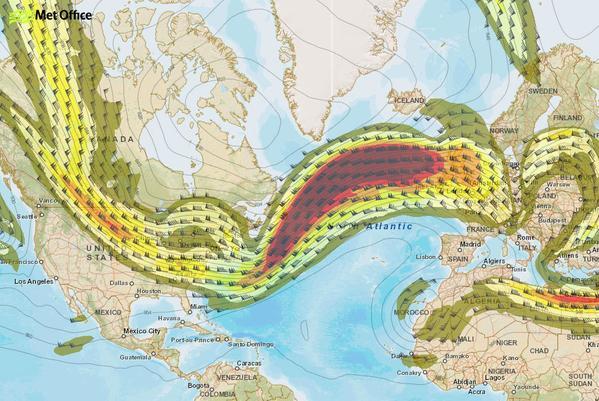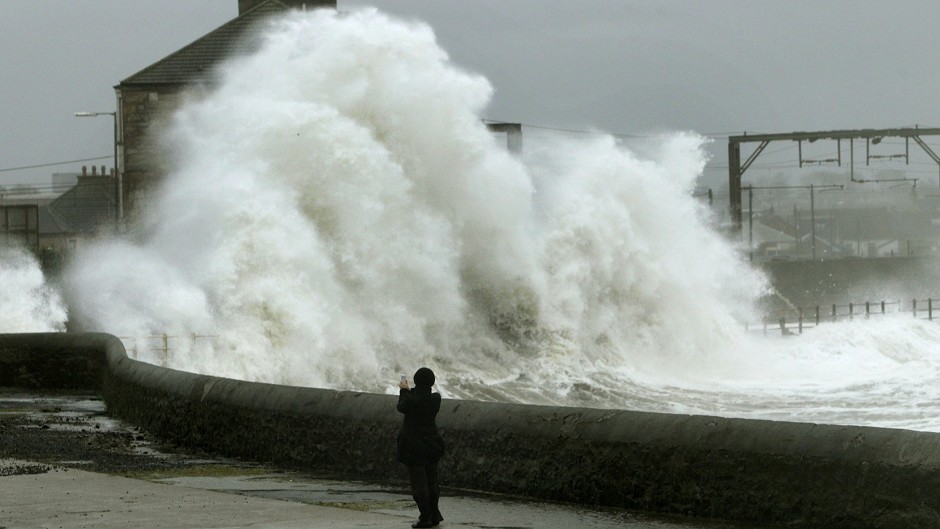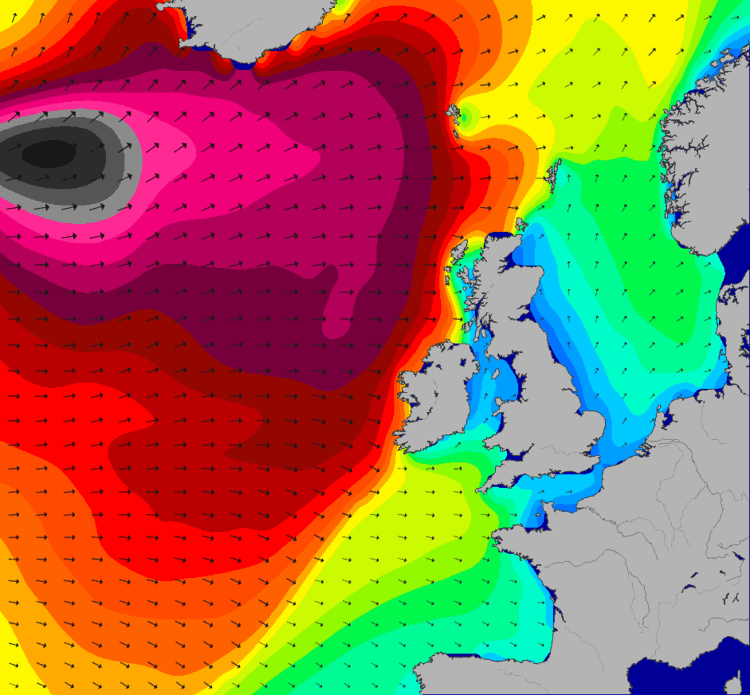Britain is set to be battered by gale-force winds this week as a 250mph jet stream surges in from the Atlantic.
Experts warned that gusts of up to 90mph could lash the country on Friday, sparking fears it could tear down trees and wreak havoc to travel and power lines.
Britain will today be hit by winds of up to 60mph in the north while up to three inches of rain could fall over western parts of the country with the Pennines expected to see the largest deluge.
Forecasters say the jet stream will bring with it wind speeds of up to 250mph at flying level – and that conditions could rival the storm-like weather which battered parts of southern England at the end of 2013.
The powerful jet stream will hit in earnest overnight tomorrow into Friday, triggering a yellow warning from the Met Office.
Gusts of up to 90mph are predicted to hit northern Scotland while 70mph winds will be widespread across northern England and the rest of Scotland.
The extra-fast jet stream has been triggered by plunging temperatures in the United States which has hit warmer air south, stirring up potent winds.
Met Office forecaster Helen Roberts said: “It will probably be on Thursday night into Friday morning that we have the strongest winds.
“It could fell trees and could definitely cause some damage.”
The Met Office has issued two more yellow warnings for Saturday amid predictions that two areas of low pressure will bring more extreme weather.
Gusts of 90mph are expected to hit northern Scotland while 70mph winds will batter the top half of England.
Ms Roberts warned: “These winds could stir up waves on the way in and cause damage along the coast. There could be a surge on top of the tides in the North Sea in the day on Saturday.”
Tens of thousands of homes were left without power, trees were uprooted, trains and flights cancelled and floods crippled huge swathes of the UK when storms arrived on the south coast in October 2013.
Bethany Freeman, 17, died when the tree came down on a caravan as she slept in Kent, while 14-year-old Dylan Atkins was swept out to sea when he played near waves in Newhaven, East Sussex.
Meteorologist Mark Wilson, of the Met Office, said northern Scotland had a climate which was better suited to harsh winds, compared with the south of England.
He said: “Our best advice is to be aware of the strong winds and to check our weather warnings.
“It could have an impact on transport and services, and cause structural damage.”


